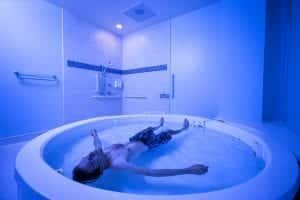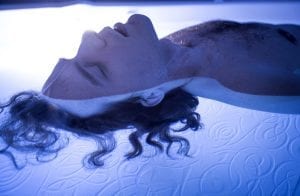Float Therapy: A Proven Treatment for Anxiety
Anxiety disorders are the single most common mental illness in the United States, affecting 40 million adults, or about 18% of the population. Unfortunately that number continues to rapidly increase over the years. The general cost for anxiety disorders alone in the US is over $42 billion per year and makes up almost ⅓ of the entire mental health bill.
So why the rapid increase in anxiety disorders?
One idea is linked to the dramatically increased amount of time each person spends on digital technology per day. Many Americans spend a majority of their day in front of a screen or device – think about it – computers, cell phones, tablets, televisions. In 2018, we’re receiving five times the amount of daily information compared to 1986. This a new era and both our brains and our eyes aren’t used to this kind of strain. Researchers believe this could be the culprit behind increased depression and anxiety.
Currently in the medical field, anxiety is treated with medication. But what if medication isn’t an option for you? What if there was an alternative treatment without side effects? Reducing symptoms of anxiety is a primary short-term goal, but what if there was something that could actually not only treat, but also reverse the anxiety response?
Enter Dr. Feinstein and his medical research facility, LIBR. We were lucky enough to host and hear from Dr. Feinstein at our annual convention last week.
 Dr. Feinstein’s groundbreaking publication is important because it is the first peer-reviewed study of floatation that takes a look at a clinical population with PTSD, panic disorder, and other manifestations of anxiety. Remarkably, every single participant found significant improvement in how they were feeling after just one float session. 50/50 participants and their relief lasted for 20-36 hours after the float! Even more remarkable, is that the more severe their anxiety, the more relief they experienced. To see results across the board is a wonderful testament to the potential for the clinical use of floating and the power it has for everyone to improve the quality of their lives. Dr. Feinstein’s study powerfully demonstrates that floating has the ability to reduce anxiety, uplift mood, decrease muscle tension, lower blood pressure, and improve bodily awareness and meditative states. Click here to view the official research publication from the LIBR team.
Dr. Feinstein’s groundbreaking publication is important because it is the first peer-reviewed study of floatation that takes a look at a clinical population with PTSD, panic disorder, and other manifestations of anxiety. Remarkably, every single participant found significant improvement in how they were feeling after just one float session. 50/50 participants and their relief lasted for 20-36 hours after the float! Even more remarkable, is that the more severe their anxiety, the more relief they experienced. To see results across the board is a wonderful testament to the potential for the clinical use of floating and the power it has for everyone to improve the quality of their lives. Dr. Feinstein’s study powerfully demonstrates that floating has the ability to reduce anxiety, uplift mood, decrease muscle tension, lower blood pressure, and improve bodily awareness and meditative states. Click here to view the official research publication from the LIBR team.
Floating is the ultimate non-invasive, non-drug induced way to achieve profound relief and relaxation.
 The way things are going, we can’t continue to put millions of people on medication simply to mask these symptoms of anxiety. We need to get to the root of the issue and find a way to keep anxiety gone for good. Dr. Feinstein’s research exemplifies just one of the powerful ways to reduce stress and anxiety, but how do we get this information out to the masses and how can we change the course of a global addiction to stimuli? That’s a question the entire float industry is trying to find the answer to. Time will tell what the future holds, but in the meantime, the more people we can get floating, the better.
The way things are going, we can’t continue to put millions of people on medication simply to mask these symptoms of anxiety. We need to get to the root of the issue and find a way to keep anxiety gone for good. Dr. Feinstein’s research exemplifies just one of the powerful ways to reduce stress and anxiety, but how do we get this information out to the masses and how can we change the course of a global addiction to stimuli? That’s a question the entire float industry is trying to find the answer to. Time will tell what the future holds, but in the meantime, the more people we can get floating, the better.
Looking for float research? Head to ClinicalFloatation.com for an archive of ALL peer reviewed studies dating back to the 60s.
The post Float Therapy: A Proven Treatment for Anxiety appeared first on True REST Float Spa.